Shocking images of the damage our plastic use has had on the planet have put the issue firmly on the public and government’s radar. C-Store looks at what retailers are doing to reduce its use and why the war on plastic is far from straightforward
Plastic has suffered a dramatic fall from grace. Its destructive impact on the environment was hardly a secret, but it wasn’t until David Attenborough’s recent Blue Planet series that public consciousness appeared to undergo a tipping point.
“When you have a national treasure like David Attenborough and pictures of a baby whale eating plastic, it doesn’t take much else to get people interested,” says Trewin Restorick, chief executive for environmental charity Hubbub.
The TV series’ focus also seemed to drive government action in this area. Capturing the public mood, environment secretary Michael Gove has spoken of being “haunted” by footage of oceanic destruction.
Restorick adds: “There is also a political and personal motive behind the government’s environmental policies. The Deposit Return Scheme, for example, is something that environment secretary Michael Gove has pushed very strongly.
“The Conservatives are also trying to engage with younger voters and their concerns about the environment.”
Policy so far includes a 25-year environmental plan. It is relatively vague on detail, although the 5p plastic bag levy is due to be extended to all stores - currently it is exclusive to larger retailers. A Deposit Return Scheme for single-use drinks containers is earmarked in Scotland, and the Westminster government is expected to consult on this in the summer. It also plans to ban the sale of plastic straws and drink stirrers.
Ministers are yet to yield to MPs’ (the Environment Audit Committee) calls for a 25p levy on disposable coffee cups, yet retailers of all types are taking the initiative on this (see p22).
Sandwich packaging may be in the spotlight next, Restorick believes. “The rumours we’ve heard, from working with companies such as Starbucks and Prêt, are that the next focus on plastic waste may be sandwich packs so that’s something that retailers should be aware of,” he says.
The retailers’ agenda
A number of multiples have already taken the initiative on plastic reduction. In April, the big four supermarket groups, as well as Aldi, Lidl and Waitrose, were among 40 businesses to commit to ambitious plastic reduction targets by 2025.
The so-called UK Plastics Pact brings together retailers, manufacturers - including Coca-Cola European Partners and Nestlé - trade associations, government and NGOs, to tackle plastic waste.
Meanwhile, Iceland has pledged to eliminate plastic packaging from all of its own-brand products by the end of 2023. So far it has launched two new frozen meal lines in paper-based trays in place of the customary black plastic ones.
Elsewhere, the Co-op Group - whose own-brand products are soon to appear in Nisa and Costcutter stores - has set an ambition for 100% of its own-brand product packaging to be recyclable. It has already replaced all polystyrene pizza boards in own-brand pizzas with cardboard ones and is planning to switch all of its bottled water to 50% recycled plastic. Furthermore, it is trialling reverse vending machines at four festivals this summer to signal its commitment to a Deposit Return Scheme.
Iceland is also trialling a reverse vending machine at its Fulham store, in which customers are repaid with a 10p store voucher for each Iceland plastic bottle recycled.
What’s more, the public is firmly behind the drive, according to a survey of 5,000 shoppers carried out for Iceland. The survey found that 91% would encourage friends and family to shop in a supermarket with a plastic-free agenda. “Consumer reaction to [Iceland’s] announcement has been overwhelmingly positive; indeed, the only serious criticism of the announcement has been of the length of time it will take us to fulfil our pledge,” Iceland director of corporate affairs Keith Hann tells C-Store.
Hann points out that there are a number of alternatives to plastic readily available to independents, including: milk in glass bottles; juices in paper-based packaging such as Tetra Pak; paper straws; yogurt, cream and ice cream in paper-based tubs; bakery products in paper packaging; produce and eggs in pulp trays; vegetables sold loose with paper bags; wooden-handled toothbrushes; and offering a refill option.
Many independents are keen to embrace the zeitgeist. Essex Nisa retailer David Nice says: “I’m really looking to reduce on plastics. It’ll cost me, but it’s worth it - I’d rather do the right thing. Momentum is there now, and the public want it, but the problem is they don’t want to pay for it, so we’ve got to do it without customers paying more.”
For his part, David is selling more fruit and veg loose - although he concedes that this is a small part of his business - and is looking to take action on coffee cups, perhaps by stocking the compostable Vegware cups.
Many independents have been charging 5p for plastic bags for a while, despite no obligation to do so, and David is encouraging customers to avoid them altogether. “We supply free cardboard boxes for customers to put their shopping in, instead of bags - and we charge for plastic bags anyway,” he says.
Elsewhere, the Surrey University Simply Fresh store is among a number of university sites phasing out plastic carrier bags in favour of recyclable paper carrier bags.
Amy Anslow, co-founder of ethical supermarket Hisbe in Brighton, East Sussex, urges independents to work with their suppliers to improve packaging. She says independents are “ideally positioned” to take advantage of people’s interest. “Lots more people are interested in the laundry and washing-up liquid refills in particular, as well as our bamboo toothbrushes and products from our dry food dispensers.” Overall, sales of Hisbe’s non-packaged range - including food and non-food - are up more than 50% year on year.
Dry food from the dispensers is proving particularly popular, especially cereals. “Stuff like packaged muesli isn’t cheap, but all the dry food is significantly cheaper from the dispensers. We’re in the process of phasing out the packaged alternatives, starting with nuts and seeds. Soon we’ll get to the likes of pasta,” she says. The store buys in bulk from local Infinity Foods Wholesale and Bristol’s Essential Trading Co-operative.
The Eat 17 Spar chain is also taking steps to reduce plastic waste. In its Bishop’s Stortford store paper straws have replaced plastic, alongside reusable bamboo coffee cups and refill stations for detergent, washing-up liquid, wine, cereals, nuts and grains.
It plans to introduce the measures in its other three stores, in London and Kent, as well as its two new London stores planned for this year. A fresh organic milk refill station is also earmarked for the Bishop’s Stortford store in the summer.
Brand manager Saskia Parks says: “Our customers are definitely looking to be eco-friendly and are making efforts not to buy pre-packaged foods and use disposable items such as coffee cups.”
Simply Fresh says it actively encourages stores to use refillable laundry products. “We have also noticed that there is much more choice of non-plastic packing items available, which encourages retailers to move in this direction,” says Simply Fresh office manager Richard Benn.
Booker says it is carrying out an in-depth review of its own-brand plastic packaging. “This involves working with our own-brand suppliers to understand any improvements that can be made. Once we understand the challenges and opportunities, we will then be in a position to recommend or implement any practical changes,” a spokeswoman says.
Spar says it will also be “working on ways to help protect our environment” this year.
Fresh challenges
While Hisbe has enjoyed considerable success with ‘dry food’ and non-food items, fresh is proving more challenging. The retailer recently trialled paper-packaged sausages, which appeared to generate more interest on social media than actual sales. “There’s an appetite there, but it wasn’t converting into sales,” Amy says. “Customers don’t always act in line with their values, and we need to understand why. Did the feel of the product put people off, or was there another reason? We’ve now gone back to regular packaging with sausages.”
She adds that there is an issue with hygiene perception around meat. “We present it as naturally as possible, so it will look different to supermarket meat. It’ll take longer with certain products.” But she believes there is an “enormous opportunity” for packaging designers in the fresh food area.
Ginger’s Kitchen, a South East producer of ‘chef prepared’ meals, is actively reducing plastic in its packaging. “We use recyclable wooden boxes imported from France for our ready meals. We’re testing compostable pots for our salads, which look like papier mâché, but the challenge is for the packaging not to absorb the contents, so we’re trying to put greased lining in it,” says business development manager Helen Davies. “With soup, something really eco-friendly will just disintegrate, so the obvious solution is glass, but that presents its own challenges.
“But technology will evolve to overcome these challenges,” she adds. “It’s exciting - and lots of people agree with what’s going on. It’s something that has to be done, regardless of cost.”
Iceland’s Hann says the key is to look at ways of replacing plastic with alternative polymers such as PLA, PBS and cellulose. “As more pioneering technologies come on stream, greater demand will drive increased availability and reduce overall costs,” he says.
“Some of our internal studies demonstrate that we can improve shelf-life by switching out of plastic, for example into paper/pulp punnets for mushrooms and strawberries, but we recognise that overall plastic provides good protection for products and the biggest single challenge is ensuring that replacements can match this.”
For the time being, retailers are demonstrating that there are various options to reduce your business’ plastic consumption. There is little to suggest consumers will not embrace such measures - especially if they are affordable.
Product innovation
Ethical water brand One Water has introduced cartons, canned water and refillable bottles. The brand hopes the move will encourage consumers to explore alternatives to single-use plastic bottles. “We’ve had loads of interest from independent retailers,” says commercial director Paul Vita.
Clipper Teas has pledged to have a fully biodegradable tea bag in operation by the summer after completing initial trials on a new substrate.
The Co-operative Group is also developing a fully biodegradable paper tea bag, which it claims could save nine tonnes of plastic wastage per year. Its own-brand 99 tea could be on shelves later this year without polypropylene - an industry-wide method used to enable tea bags to hold their shape.
Nestlé has announced its ambition to make 100% of its packaging recyclable or reusable by 2025. Its vision is that none of its packaging, including plastics, ends up in landfill or as litter. “The bottles we use at our Nestlé Waters factory in Buxton are already 100% recyclable but that does not mean we will stop there,” says Nestlé UK & Ireland ceo Stefano Agostini.
CocoPro, a low-sugar coconut water, comes in a Tetra Pak carton made from more than 50% paperboard - a renewable, plant-based material. The cartons can be widely recycled in 92% of the UK’s local authorities, the brand says.
Disposing of coffee cup waste
Reducing disposable coffee cup use is considered a key weapon in the war against plastic. Disposable coffee cups are technically recyclable, but most are not recycled because of the cups’ tightly bonded plastic (polyethylene) liner, according to MPs on the Environmental Audit Committee.
The committee has called on government to introduce a 25p levy on disposable coffee cups, with proceeds used to improve the UK’s ‘binfrastructure’ and reprocessing facilities.
Retailers are taking action, however. UK coffee shop chain Boston Tea Party, which operates 22 sites in the South West and Midlands, has banned disposable coffee cups and now requires customers to drink from a reusable cup.
Customers are able to buy Ecoffee cups, borrow a loan cup, or bring their own.
Ancoats General Store in Manchester offers recyclable Vegware cups, but about four in five shoppers are still using disposable cups, says manager Jay Patel.
He says he would like to follow Boston Tea Party’s lead but “the market is still not ready at the moment”.
Meanwhile, Costa Coffee has announced that it wants to start a ‘cup recycling revolution’ by recycling the same volume of disposable cups as it sells by 2020.
Under the scheme, 500 million coffee cups a year would be recycled. Costa wants to encourage waste collection firms to process the cups by paying them £70 a tonne.
Costa has also confirmed that the scheme would include disposable cups sold through its Express coffee machines.Retailers with an Express machine will be able to set up a ‘cup collection’ via their own waste contractor and have cups recovered from their sites.
Elsewhere, Waitrose loyalty card holders will no longer be able to get free hot drinks in disposable cups, after the retailer pledged to remove them from stores this autumn.
East of England Co-op taps into the water fall effect
East of England Co-op has replaced 500ml still water plastic bottles with a water refill station at two stores as part of a ‘bottle for life’ trial.
Customers at the society’s Nacton Road forecourt in Ipswich and its Norwich Station store are able to purchase an eco-friendly bottle for life. More than 2,000 of the bottles have been sold in the trial to date.
The ‘water refill station’, which accepts cash and contactless, also allows customers the opportunity to rinse and refill their own bottles.
The bottle for life, designed for regular re-use, is available at a one-off cost of £2.49 with a free refill. All subsequent refills cost 50p.
If the 12-week trial proves successful, the initiative could be rolled out across all of East of England Co-op’s 125 stores.
Deposit Return Scheme: The state of play
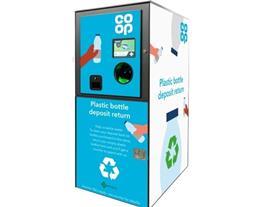
Reducing disposable coffee cup use is considered a key weapon in the war against plastic. Disposable coffee cups are technically recyclable, but most are not recycled because of the cups’ tightly bonded plastic (polyethylene) liner, according to MPs on the Environmental Audit Committee.
The Co-op Group and Iceland have rolled out reverse vending machines ahead of a potential Deposit Return Scheme (DRS), which is expected to be subject to government consultation this summer.
However, the merits of such a scheme are subject of much debate. The Association of Convenience Stores (ACS) is concerned that a DRS would be difficult for small stores to manage and unlikely to be used by consumers.
A recent survey of 1,210 UK independent retailers found that 71% thought a DRS would be impractical to implement due to the space that it would require, according to the ACS.
Trewin Restorick, chief executive of environmental charity Hubbub, says he is sceptical about the efficacy of the scheme, and whether it will actually materialise. “Scotland originally said it was holding a consultation on the issue, but we haven’t heard anything since England announced it too would hold a consultation later this year.
“The first question you have to ask is what is the point of the DRS? If it is not going to work alongside kerbside recycling then it’s going to come at a cost for retailers.
“I can see the system working in places such as train stations, universities and even offices, but I don’t think anyone has properly looked into the possible impact on retailers and how the scheme could work in practice.”
This month Hubbub launches a project in Leeds with the OPRL (On-Pack Recycling Label) scheme to develop an app that people can use to scan their plastic bottles and take them to their nearest recycling point.
“OPRL has had to work with all the major soft drinks brands so that the app is able to recognise products and make sure the system is ready for the project,” he says.
“I think it is unlikely that the results of the initiative will be used as evidence in the consultation and in fact I’m not sure where the government are going to get data to explore how the scheme might work.”
Environment minister Thérèse Coffey, along with a ministerial delegation, this year visited Norway, Sweden and Denmark to find out more about their deposit return schemes. In Norway, for example, a small deposit is charged on each drinks bottle and refunded when the empty bottle is returned.
Stores selling bottled drinks are obliged to collect the empties and retailers receive a small handling fee for this service, while in some supermarkets and larger shops reverse vending machines have been installed.




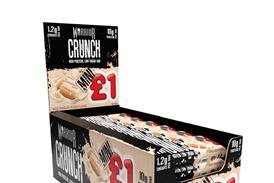










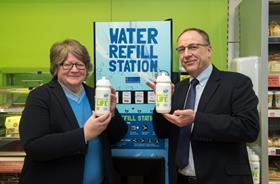
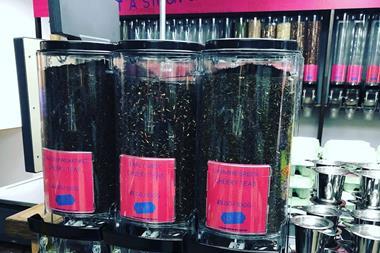
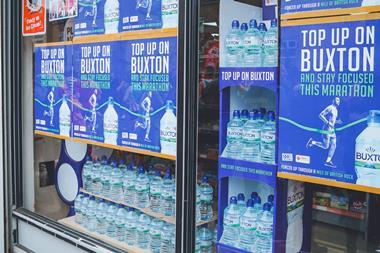
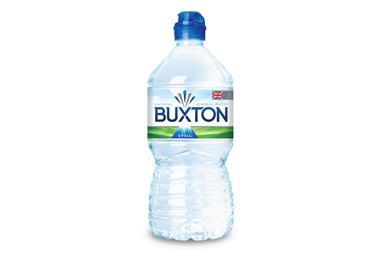
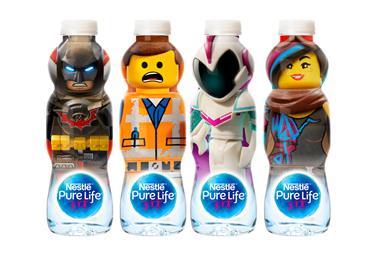
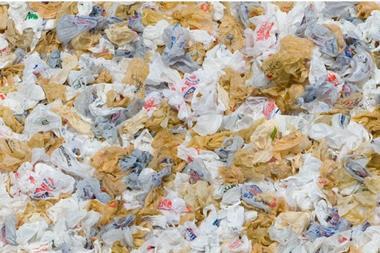
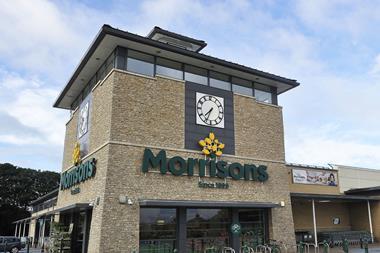
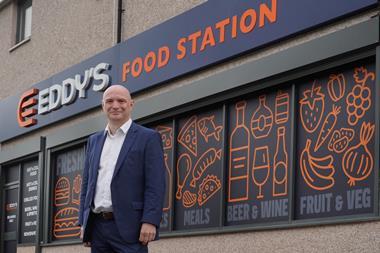
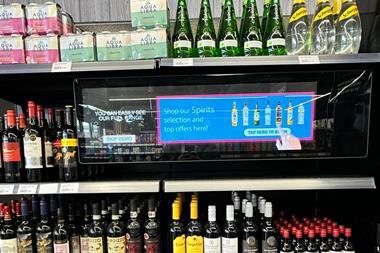

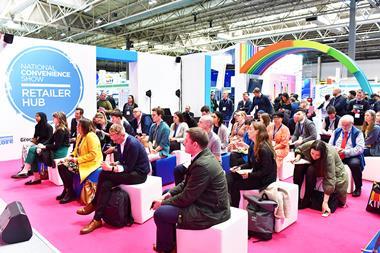
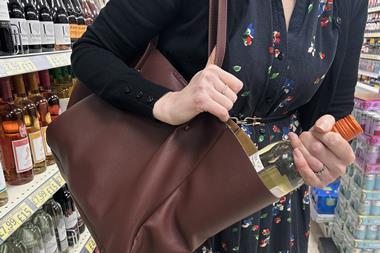
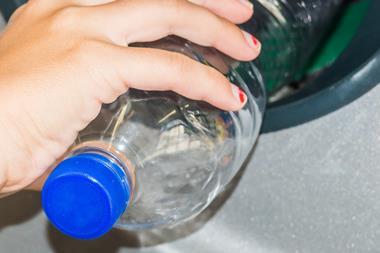
No comments yet